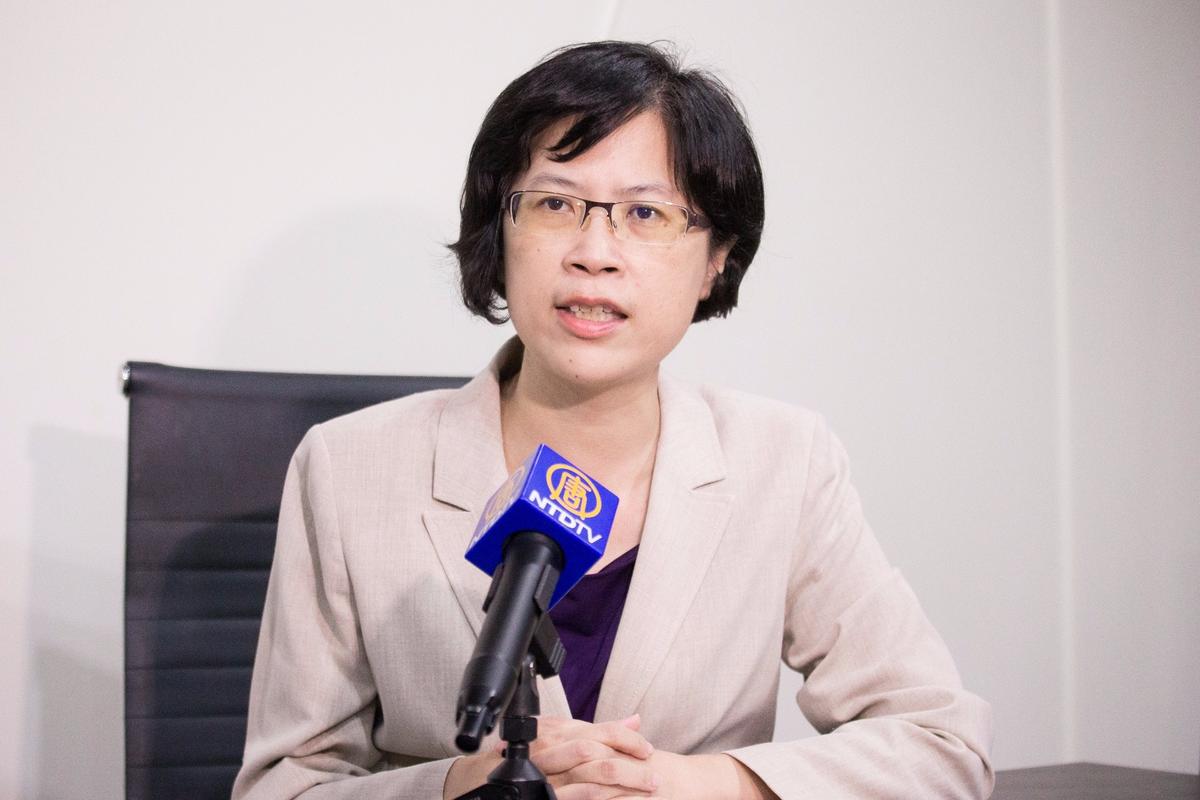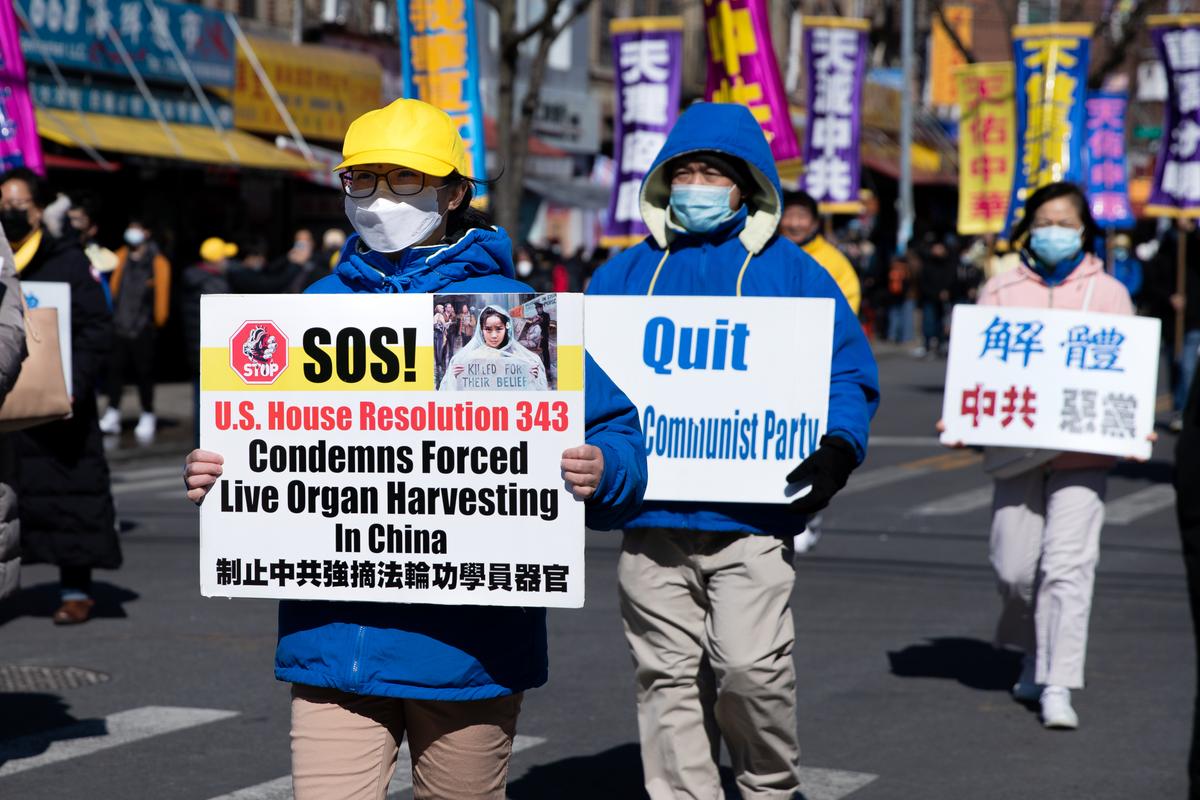Human rights groups are pushing a bill to create an international sanctions network to punish the Chinese communist regime for what they describe as the “unprecedented evil atrocity” of forced organ harvesting.
The bill would make it a crime for anyone to forcibly remove organs from another living person against their will; store or transport the organs; operate facilities to host transplant surgery of those organs; receive the organs; or advertise, fund, broker, or profit off the grisly practice through other forms.
The measure was born out of an urgency to stop the abuse at a national level when international bodies had done little to address the issue, according to Theresa Chu, a Taiwan-based human rights lawyer and chair of the advocacy group Legal Commission of Universal Declaration on Combating and Preventing Forced Organ Harvesting.
Chu, who has worked to defend Falun Gong victims for about 20 years, recalled meeting with U.N. officials almost 10 years ago and presenting a petition signed by around 1.5 million people from 53 countries and regions calling for the U.N. to condemn organ harvesting.

During the meeting, Chu told the officials about the “death camps” and “secret concentration camps” where Falun Gong inmates are “murdered through forced organ harvesting.” These camps, she said, exist in virtually every city throughout China. She reminded the officials of their responsibility to investigate and locate the sites.
“The officials did not question the source of the ‘death camp’ allegations,” Chu told a March 22 virtual side event of the U.N. Human Rights Council on organ harvesting. “They listened with somber attention, took notes, but did not respond.”
‘Silence’
Current and former lawmakers from the United States, Spain, Belgium, the Netherlands, and Taiwan agreed at the panel that the issue has received far too little attention.“This despicable practice allows China to maintain a pretty much on-demand organ transplant regime, which is unheard of even in most modern developed countries,” Rep. Steve Chabot (R-Ohio) said, describing it as “one of the most barbaric practices in human history.”

“Silence” was a recurring theme during the discussion by the panel of doctors, lawyers, officials, and medical ethics advocates.
“In China, living people who strive to be kind and tolerant are being killed for their organs. If one does not have a gut-wrenching, visceral reaction at this point, then one has not comprehended the horror and terror that Falun Gong practitioners are living through in China every day,” said Dr. Torsten Trey, executive director of the Washington-based advocacy group Doctors Against Forced Organ Harvesting (DAFOH). In 2019, DAFOH received the Mother Teresa Memorial Award for Social Justice for its efforts to shed light on the illicit practice.
While Russia’s aggression against Ukraine is drawing international outrage, participants noted that Beijing’s eradication campaign mounted against Falun Gong practitioners has continued to fly under the radar.
Trey, noting the undisclosed number of victims killed for their organs over the past 23 years, thought the lack of attention might be due to the fact that the Chinese regime has been conducting these acts behind closed doors.
“Everyone is now rightfully shocked to watch the human tragedy and the loss of human lives in Ukraine, but how would we react if we saw all of the hundreds of thousands of people being organ harvested in China on social media and TV?” he said.
In the face of brutality, “silence is not neutral,” Trey said. “Silence means that one has decided not to actively choose goodness.”
And Belgium parliamentarian Annick Ponthier appears to agree.
Paving the Way
In relation to Chu’s proposal, China’s neighbor Taiwan has already provided a roadmap.Tien Chiu-chin, a member of the National Human Rights Commission in Taiwan and former legislator, was a chief actor behind the island’s efforts to explicitly ban organ transplant tourism in 2015.
She recalled the deep shock that hit her during her first year as a legislator in 2006 when she first learned from Falun Gong practitioners what happened to their fellow adherents in China.
“Previously I had always thought the Nazi’s atrocities were the most heinous evil,” she said at the event. A violation like this, she said, is “baffling and beyond our imagination.”
Taiwan has, since 2015, made it mandatory for patients going abroad for transplant to register the country, hospital, and doctor involved in their operations or be stripped of national coverage for anti-rejection drugs, which they need to take for the rest of their lives. The island also maintains a blacklist of Chinese doctors involved in organ harvesting to bar them from entering Taiwan.
This gatekeeping has cut down the transplant tourism to China significantly, said Tien, who called on all world nations to consider replicating Taiwan’s supervision system.
“We are acutely aware how much profit is involved in forced organ harvesting. That is why such an atrocity cannot possibly come to an end by itself,” she said.
While Taiwan is not a member of the U.N., Tien implored the U.N. Human Rights Council to form an investigative task force.
“At least we have to understand the situation; we should investigate what on earth is going on in the world in this regard,” she said.
“We have to seek the truth,“ she added. ”We have to expose the problem and face it so that we can resolve it and stop such an atrocity against humanity and against human rights.”





